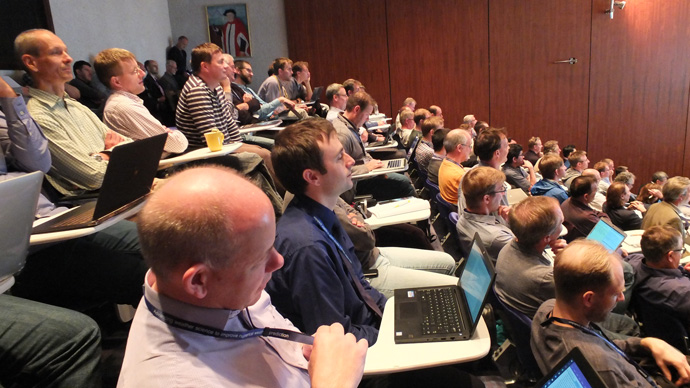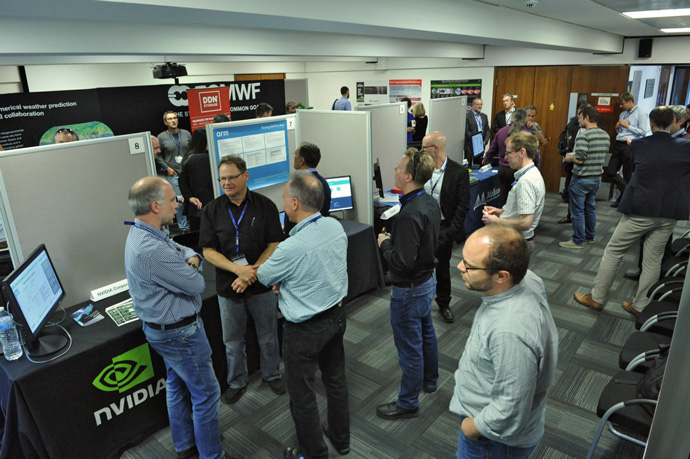
Sami Saarinen, Senior Analyst in ECMWF's HPC Applications Team
As one of the organisers of the 18th Workshop on High-Performance Computing (HPC) in Meteorology at ECMWF from 24 to 28 September 2018, I was impressed by the breadth and depth of the talks given by the 41 speakers.
HPC architectures are becoming ever more complex. The workshop talks shed light on the significant challenges this brings for the ongoing development of operational meteorological applications.
The five-day event looked especially at scalability and efficiency of computing and data handling for weather and climate applications on HPC systems. In particular, we had invited presentations addressing the following topics related to weather and climate applications:
- Modelling mathematics and numerical methods
- Programming models and domain-specific languages (DSL)
- High performance I/O and data post-processing
- Operational use of HPC in weather and climate
- Machine learning and data analytics
- Large dataset visualisation
The workshop benefited from a record-breaking audience of nearly 120 external participants, three excellent keynote talks and two panel discussions. For the first time, there was also a mini-exhibition by vendors, who presented their latest technologies.

The workshop was attended by a record number of external participants.
One of the days was dedicated to reporting the status of various EU Horizon 2020 projects in which ECMWF is involved and in which weather and climate applications feature. This sparked lively discussions and was an opportunity to compare US and European approaches and identify options for common developments. The day culminated with the first panel of the week on the European research roadmap towards the exascale, chaired by Andrea Feltrin from the European Commission.
Another panel discussion, chaired by Dan Still from CSC (Finland), gave rise to very lively debates about the convergence of HPC and cloud computing. There were clear indications that these two fields are already complementing each other today and that their convergence will greatly benefit from further research and development.
The three keynote talks were given by Simon McIntosh-Smith from the University of Bristol on the entry of ARM processors into HPC markets; Rich Loft from the US research centre NCAR on tackling the simulation and analysis frontiers of atmospheric and Earth system science; and Wilco Hazeleger from the Netherlands eScience Centre on the ‘(c)loud revolution’ in meteorology and climate.

Vendors presented their latest technologies at a mini-exhibition.
There were many other interesting talks, including by ECMWF Director of Research Andy Brown on the Centre’s research directions, while other speakers covered developments at the German, UK, Japanese and Chinese national meteorological services as well as at NCAR. Talks on Météo-France's experiments with the 2.5 km non-hydrostatic global model ARPEGE and ECMWF's very high-resolution experiments up to 1.25 km shed some light on how much more computing resources will be needed in the future to make weather predictions more accurate.
An interesting triplet of talks were presented by a group of NOAA scientists led by Mark Govett, who talked about efforts to modernise their software very much in line with ECMWF's Scalability Programme, presented by Peter Bauer, to pave the way for future supercomputer architectures.
The participants were from ECMWF's Member and Co-operating States as well as from the USA, Canada, Japan and China. Many computer vendors and software providers were also present.
The presentations and video recordings of the talks are available online.
The next, 19th workshop takes place in the autumn of 2020, exceptionally in Bologna, where ECMWF's new data centre will be located by then.
